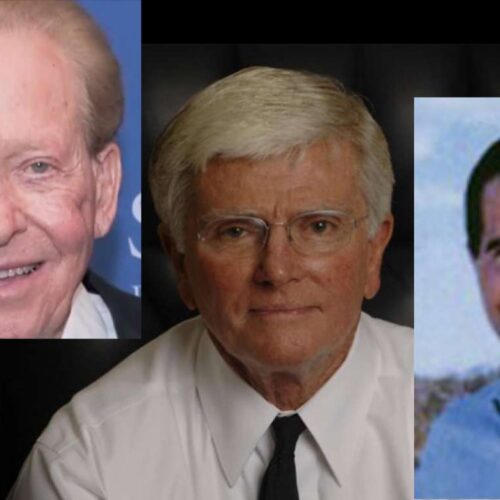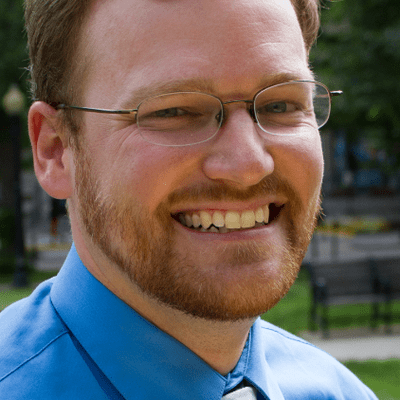Introduction
Three Texas tycoons are responsible for more than half the funds that conservative super PAC American Crossroads has raised since it was founded by top GOP strategists Karl Rove and Ed Gillespie in 2010.
Harold Simmons, Bob Perry and Robert Rowling have collectively donated $30.5 million, or just over 54 percent, to the high-profile super PAC either personally or through their corporate accounts, according to a Center for Public Integrity analysis of Internal Revenue Service and Federal Election Commission filings.
American Crossroads has raised $56 million, including a paltry $1.2 million in March. The top donor for the month was hedge fund executive Kenneth Griffin, who recently said that the ultrawealthy have “insufficient influence.” He gave the super PAC $700,000.
American Crossroads, the super PAC, and its sister nonprofit, Crossroads GPS, are set on defeating President Barack Obama and securing Republican majorities in both houses of Congress in November.
Thanks to court rulings, super PACs like American Crossroads can collect unlimited contributions from individuals, corporations and unions and spend the money on advertising urging voters to support or reject a candidate.
There are dozens of super PACs active this election, but none loom as large as Crossroads.
Simmons and Perry have long been financiers of conservative causes. Their beneficiaries have included the Swift Boat Veterans group that infamously attacked Democratic presidential candidate Massachusetts Sen. John Kerry in 2004 and helped keep President George W. Bush in the White House.
Rowling, too, has long been among the GOP’s premier moneymen. He was a “bundler” for Bush’s presidential campaigns in both 2000 and 2004, which means he solicited friends and business associates for contributions to Bush and was credited for raising a total greatly exceeding what he could personally give.
Simmons ranks as the No. 1 donor to American Crossroads since its inception in the wake of the U.S. Supreme Court’s Citizens United ruling that allowed corporate money to be used to expressly advocate for or against federal candidates.
He has donated $14 million to American Crossroads. His contributions include $10 million from his own checkbook and $4 million from corporate accounts that he controls — Contran Corp. ($2 million), Dixie Rice Agricultural Corp. ($1 million) and Southwest Louisiana Land, LLC ($1 million).
Of these donations, $12 million alone has come during the current election cycle, meaning he’s responsible for nearly 43 percent of the $28 million American Crossroads has raised for the 2012 elections.
Perry, meanwhile, ranks as the No. 2 all-time donor to Crossroads.
In 2010, Perry gave $7 million to the group — more than any other individual or company. He personally accounted for 25 percent of the $28 million that the super PAC raised ahead of the midterm elections.
So far this election cycle, he’s donated an additional $2.5 million to the pro-Republican group.
Rowling, the president, chairman and CEO of TRT Holdings — which owns the Omni hotel chain, Gold’s Gym and Tana Exploration Co. — has donated $7 million to American Crossroads, enough to rank him as its No. 3 all-time donor. His contributions have been split evenly between his own pocket and TRT’s corporate treasury.
Including money from Simmons and Rowlings’ companies, American Crossroads has raised about $14.6 million from corporations, according to a Center for Public Integrity analysis of data from the Center for Responsive Politics and the FEC. That’s about 26 percent of its overall take since its creation.
The prospect of a very small number of extremely wealthy donors having so much sway on the country’s elections and elected officials worries some political observers.
“Big super PAC donors will get access and influence that regular people can only dream of,” said Adam Smith, communications director of Public Campaign, which advocates for publicly financed elections.
“Our elections are turning into a parlor game for millionaires and billionaires,” he continued. “It skews the policymaking process and pushes regular people out of the political system.”
Conservative attorney Dan Backer, who has worked to loosen campaign finance regulations, however, thinks such concerns are overblown.
He says donors’ spending money in politics does not guarantee that their concerns will be addressed.
“Money provides access to opportunities to tell your story, and if your story is good, you’ll get results, and if it’s bad, you won’t,” he said. “In a free society, we have a marketplace for ideas. If your ideas are good, they catch on, and money doesn’t have much to do with it.”
American Crossroads was largely quiet during the GOP presidential primary, but during the 2010 midterm election it spent more than any other super PAC on ads, according to the nonpartisan political money watchdog the Center for Responsive Politics – a feat the group could repeat this year.
As the Center for Public Integrity has previously reported, American Crossroads and Crossroads GPS plan to raise more than $240 million this election cycle.
Notably, American Crossroads’ massive fundraising haul has been raised (at least mostly) in the sunlight.
Crossroads GPS, on the other hand, as a nonprofit organized under section 501(c)(4) of the U.S. tax code, is legally allowed to keep the names of its donors secret — a comfort that many donors appear to prefer. In 2010 and 2011, Crossroads GPS alone raised $77 million from unnamed sources, as the Center for Public Integrity has reported.
Read more in Money and Democracy
Money and Democracy
Ex-GOP Gov. Crist’s law firm donates to pro-Obama super PAC
Personal injury firm major donor to Dems


Join the conversation
Show Comments